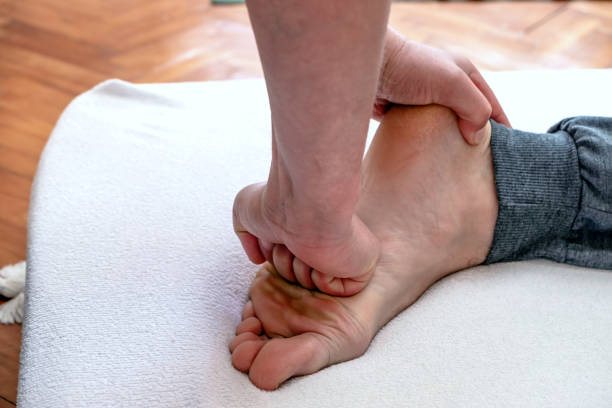The Benefits of Local MaCan You Pop Pimples Safely? Here’s What Experts Sayrketing: Tapping into Your Community
 Acne and pimples are a common skin concern that almost everyone experiences at some point in their lives. While some people try to resist the urge to pop pimples, others often find it hard to avoid. Pimple popping can be tempting, especially when you want immediate results. But is it safe? Can you pop pimples without making the situation worse? Experts weigh in on the topic to clarify what you need to know. If you’re looking for professional help for acne or other skin concerns, clinics like estheticsbymonica are dedicated to providing personalized skincare solutions.
Acne and pimples are a common skin concern that almost everyone experiences at some point in their lives. While some people try to resist the urge to pop pimples, others often find it hard to avoid. Pimple popping can be tempting, especially when you want immediate results. But is it safe? Can you pop pimples without making the situation worse? Experts weigh in on the topic to clarify what you need to know. If you’re looking for professional help for acne or other skin concerns, clinics like estheticsbymonica are dedicated to providing personalized skincare solutions.
Understanding Pimples and Acne
Before diving into the risks of popping pimples, it’s important to understand what pimples are. Pimples are small, inflamed bumps on the skin that occur when hair follicles become clogged with oil, dead skin cells, and bacteria. This often leads to the red, swollen appearance typical of acne.
Acne is typically categorized into different types, ranging from blackheads and whiteheads to cystic acne. The severity of acne can differ from one person to another, and the approach to treating it will vary based on the individual’s skin type, lifestyle, and acne type.
Why Do People Pop Pimples?
People often pop pimples because they want the blemish to go away quickly. It can be frustrating when a pimple disrupts your skin’s smooth appearance, especially before an important event. Popping a pimple may offer the illusion of immediate relief as it drains the pus, but this is rarely the right solution.
The main reasons people pop pimples include:
- Desire for Instant Results: Pimples, especially large ones, are often unsightly. People want them gone quickly to feel more confident.
- Inability to Resist: Some individuals find the urge to pop pimples irresistible, especially when they are mature and ready to pop.
- Curiosity: People may be curious about what’s inside the pimple, leading them to pop it out of fascination.
However, popping pimples can have detrimental consequences on the skin, which we will explore next.
The Risks of Popping Pimples
1. Infection
One of the biggest risks associated with popping pimples is the potential for infection. When you squeeze a pimple, you’re not only forcing bacteria deeper into the skin, but you’re also opening up a wound. This creates an environment where bacteria can multiply, leading to more pimples and possibly more severe forms of acne.
2. Scarring
Popping pimples can cause scarring that lasts long after the pimple has healed. The trauma from squeezing can damage the skin, causing deep scars or discoloration. This is especially true for cystic acne, where the inflammation is already intense. Scars from pimples can be difficult to treat and may require professional intervention, such as laser therapy or other dermatological treatments.
3. Worsening Acne
When you pop a pimple, you can inadvertently spread bacteria and oil to other areas of your face. This increases the risk of new pimples forming, particularly if you’re touching your face with unwashed hands. In some cases, the act of squeezing can push the pus back into the skin, making the acne even more inflamed and painful.
4. Delayed Healing
Contrary to the belief that popping a pimple accelerates healing, it can actually slow down the process. Popping the pimple disrupts the natural healing cycle, causing more inflammation and making the pimple last longer. This is why it’s often recommended to leave pimples alone to heal naturally.
What Experts Say About Popping Pimples
Dermatologists Weigh In
Dermatologists universally recommend against popping pimples. Dr. Mona Gohara, a dermatologist, emphasizes that while it might seem like a quick fix, it often causes more harm than good. She explains that popping pimples can push debris and bacteria deeper into the skin, leading to further irritation.
According to Dr. Gohara, the best way to deal with a pimple is by using topical treatments that reduce inflammation, such as benzoyl peroxide, salicylic acid, or retinoids. These products work by helping to clear out clogged pores and reduce the swelling of pimples. If acne persists, visiting a skincare professional, such as estheticsbymonica, can offer more targeted treatments.
Skincare Specialists’ Advice
Skincare specialists also recommend avoiding popping pimples and instead focusing on gentle skincare routines. They advise using non-comedogenic products (which don’t clog pores) and maintaining good hygiene by regularly washing your face. Furthermore, when dealing with acne, specialists may recommend facials or other professional treatments to reduce breakouts.
How to Safely Treat Pimples
Although popping pimples is not advisable, there are safer and more effective ways to treat acne at home. Here are some expert-approved methods for managing pimples:
1. Topical Acne Treatments
Over-the-counter treatments like benzoyl peroxide, salicylic acid, and retinoids are some of the most effective treatments for reducing pimples. These ingredients work by targeting the root cause of acne—clogged pores—and helping the skin to heal more efficiently.
- Benzoyl Peroxide: Kills bacteria on the skin and reduces inflammation.
- Salicylic Acid: Unclogs pores and helps to prevent new pimples from forming.
- Retinoids: Speed up cell turnover, helping to keep pores clear.
2. Use a Warm Compress
Applying a warm compress to a pimple can help to draw out the infection and reduce swelling. A warm washcloth placed over the pimple for a few minutes can soften the area and make it easier for the pimple to heal without squeezing.
3. Keep Skin Clean
Washing your face regularly with a mild cleanser helps to keep excess oil, dirt, and bacteria from clogging pores. Avoid scrubbing the skin harshly, as this can irritate the pimple and make it worse.
4. Consult a Professional
If acne persists or is severe, it’s best to consult with a skincare professional. Clinics like estheticsbymonica offer personalized acne treatments that are tailored to your skin type. Professional treatments such as facials, chemical peels, and laser therapy can significantly improve acne and prevent scarring.
5. Spot Treatments
Spot treatments containing sulfur or tea tree oil can help reduce inflammation and shrink pimples. These should be applied directly to the pimple and left overnight for optimal results.
6. Avoid Touching Your Face
Touching your face with unwashed hands can spread bacteria and oil to other areas of the face, leading to more breakouts. Try to avoid touching your face and, if necessary, use a clean tissue or cotton pad.
When Should You Seek Professional Help?
While at-home treatments can be effective for many, some people may require professional assistance to manage acne. If you experience the following, it’s time to consult a skincare professional:
- Severe or cystic acne that doesn’t respond to over-the-counter treatments.
- Acne that leads to significant scarring.
- Uncontrolled breakouts that are affecting your confidence and quality of life.
Why Consider a Professional Clinic?
Skincare clinics like estheticsbymonica offer specialized treatments for acne. These treatments are often more effective than what you can achieve with over-the-counter products. A professional will evaluate your skin and provide a treatment plan tailored to your needs. Whether it’s a medical-grade facial, laser treatment, or customized skincare regimen, a dermatologist or licensed aesthetician can help you achieve clearer skin more safely and effectively.
Conclusion
While popping pimples might seem like a quick fix, it can lead to more harm than good. From the risk of scarring and infection to worsening acne, experts strongly advise against squeezing your pimples. Instead, focus on a gentle skincare routine, use recommended acne treatments, and consult with a professional for persistent or severe acne. Clinics like estheticsbymonica offer expert guidance and treatments that can help you manage acne and achieve clearer skin in a safe and effective manner.
Remember, patience is key when it comes to acne treatment. With the right approach, your skin can heal naturally, and you can avoid the long-term consequences of popping pimples.







